Blog
Buying Soil in Bulk or By the Bag – When to Choose Bulk Over Bag
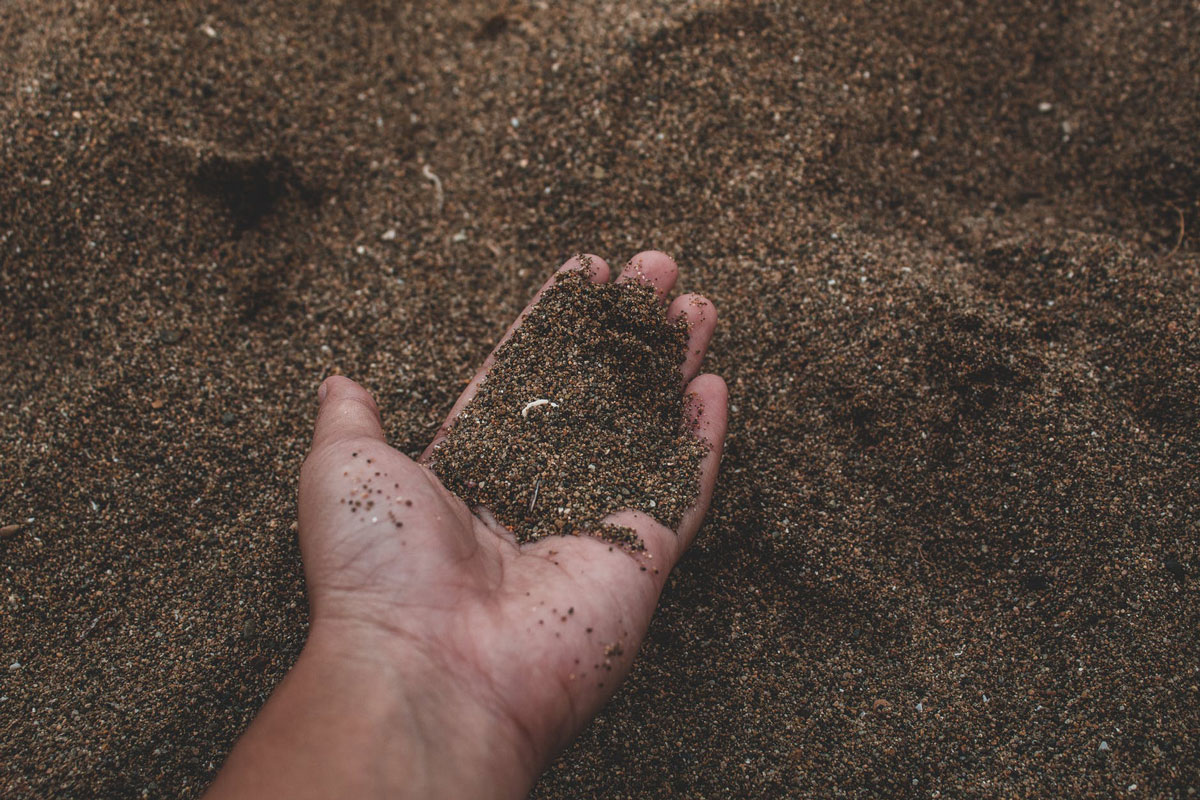
Is there a difference between soil bought in bulk and soil by the bag? When’s the right time to choose one over the other? These are questions a lot of gardeners and landscapers new to the world of soil, mulch, and everything related to ground growth ask themselves. When we understand the differences between buying soil in bulk or buying it by the bag, you quickly find out which one’s best for your needs and situation.
The process of buying soil should be as simple and straightforward as possible. If you feel more comfortable paying a little more to have soil by the bag, we say go for it. Homeowners who prioritize convenience over quality, this may seem easier for them. That said, bulk soil delivery could be argued as equally convenient and is easy to arrange with the right company. Also, quality-wise, both options have their benefits.
If you have a large garden or yard and want topsoil to supply it with, you can save time and money through bulk topsoil delivery. The biggest advantage is of course all it takes is a phone call, an agreed upon time, and then everything you need is delivered right there. You don’t have to make a trip to the store or anything. You also get as much as you want laid down right in the yard.
Read more: Buying Soil in Bulk or By the Bag – When to Choose Bulk Over Bag
What to Look For in an Excavation Company in Toronto
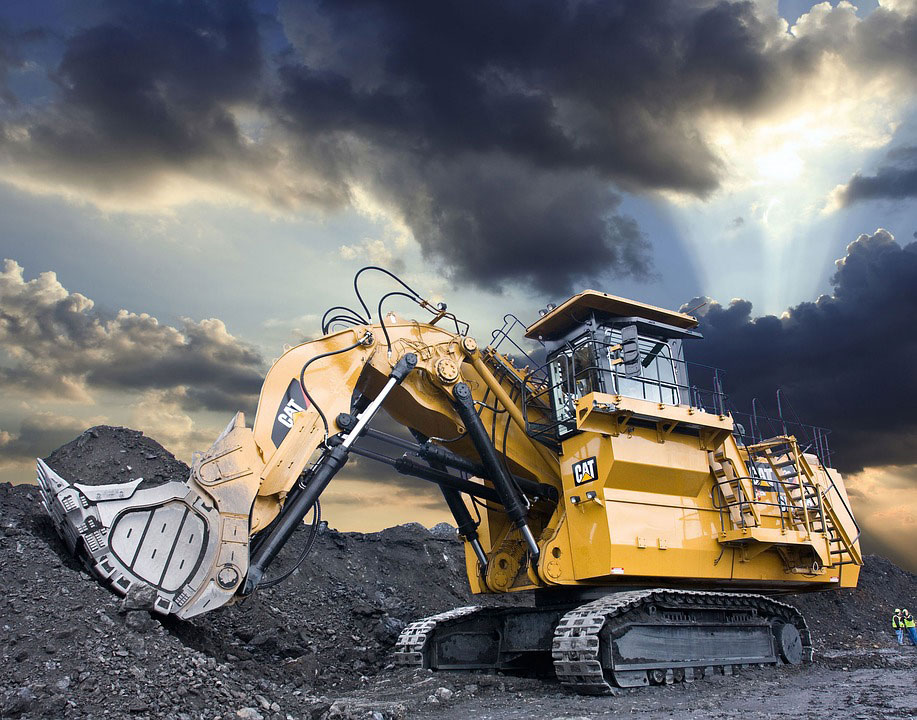
The hub of development that Toronto is, you may not think it difficult to find a great quality experienced excavation company. Unfortunately, some construction contractors make the mistake of hiring the wrong excavators for the job. A good quality excavation is so important to the long-term health of a construction project. You don’t want to make a mistake so early on. Here’s what to look for in an excavation company in Toronto.
It might sound silly to say because it seems so obvious but the #1 rule is hire someone you know knows what the heck they’re doing. Excavations are precise and crucial to any project. It’s not just moving dirt, like many may see when they think of an excavation company. When you choose who you’re going to work with, you want to find a company that’s seasoned and experienced with highly trained professionals and the right equipment. Here’s the bottom line about excavations in Toronto.
Have the right equipment
Hiring an excavator contractor in Toronto doesn’t happen if the people you hire aren’t showing up prepared. They need the right equipment for the job. Experienced excavation companies have entire fleets of diversified equipment to handle all sizes and types of jobs. They should have the tech to perform estimating and grade control accurately and on time. Excavation services should also have invested in preventative maintenance and repair, with the necessary gear and equipment to support these standards.
Read more: What to Look For in an Excavation Company in Toronto
How Often to Replace Soil in a Garden to Create a Better Growing Environment
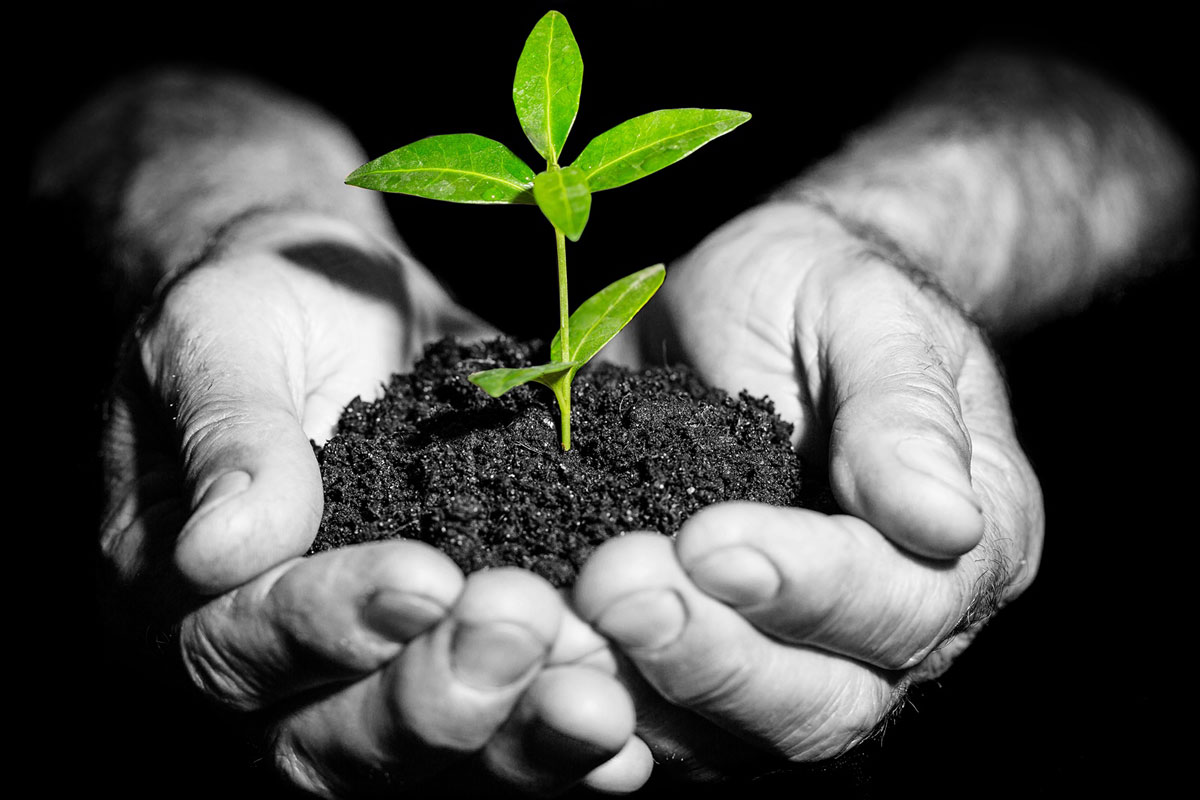
Knowing when to replace soil in a garden is only going to help you create a more efficient place to grow flowers, plants, and vegetables. For plants of all shapes and sizes, they all rely heavily on quality of soil to deliver the expected growth. Creating the garden of your dreams can remain entirely a dream if soil isn’t replenished on occasion. It’s equally as important as ensuring your plants are getting enough water and sun.
Why do you even need to replace soil?
Soil isn’t just dead ground. It’s got some nutrition to it. There’s some health that needs to be maintained. When it’s not, you can end up with a yield that isn’t as plentiful as you may have hoped. Failing to replace soil or not replenishing the soil when you need to means less nutrients are going to get to your plants.
Over time, soil can lose and once it’s degraded to a certain point, you may find it hard to grow much of anything. This is why there are so many bags of soil outside grocery stores come springtime. Soil needs replacement or replenishing, just as much as anything. The nutrients go down, the moisture retention goes down, and soon, you’ll find problems arise in the form of unwelcome weeds or erosion.
How often should I replace my soil?
Though you can arrange for bulk soil delivery in Toronto when you need it, you don’t have to necessarily replace soil as often as you might think. How often you have to replace your soil depends on the type of plants you are growing, the type of soil you are using, the condition of your property, and the effects that weather may have had on it. In the vast majority of gardens, you should only have to replace your soil once a year.
Read more: How Often to Replace Soil in a Garden to Create a Better Growing Environment
Conserving Water is a Recycling Strategy Many Toronto Homeowners Forget About

A lot of Toronto homeowners have been doing absolutely fantastic jobs at recycling and minimizing landfill waste output for themselves but one area that’s often forgotten is water. So many homeowners may already be thinking, they already don’t use very much water, is there even an opportunity to change the amount they use week to week? The answer – there may be.
In summer, water consumption goes up in Toronto. This isn’t unexpected. Especially when we’re going through a particularly hot and dry summer, water consumption’s up and sometimes a shortage presents itself. Water conservation is important to our community because it takes resources to clean and distribute water. This isn’t to mention the water we don’t really need that gets eaten up because of our inattentiveness or our lack of education.
The average home in Toronto uses 340 litres of water per day. Come summer, for some, this consumption creeps up to over 670 litres a day due to things like lawn sprinkling, power washing, and various outdoor uses. This just goes to show how much water we use every day in the GTA. Can you guess what the #1 source of our water use is? Believe it or not, it’s our toilets. The toilet, albeit necessary, takes up a huge amount of water. In fact, over the course of the day, a toilet can take up anywhere from 90 to 110 litres to continue working.
Read more: Conserving Water is a Recycling Strategy Many Toronto Homeowners Forget About
What Do Excavation Contractors Do and What to Expect When Hiring an Excavation Company
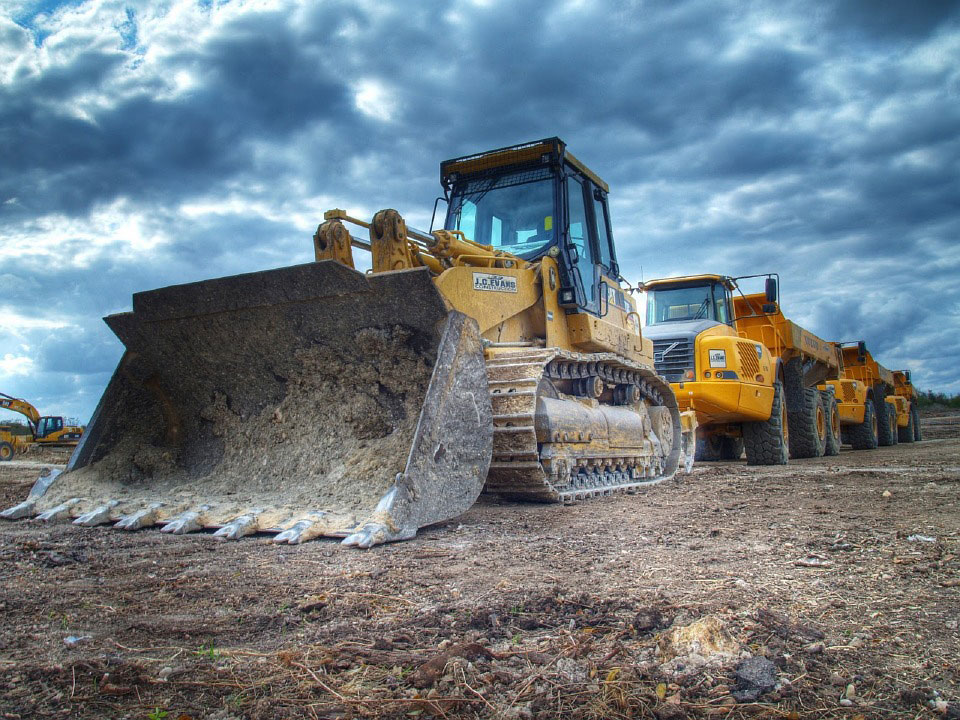
Do you need an excavation contractor in Toronto but don’t quite know what you’re getting for what you pay for? Let us put all questions to rest and outline a little bit about how excavation companies work.
An excavation service in construction are known to be the trucks that haul the dirt around but these contractors do so much more than lugging around ground. Excavators also participate and/or may oversee site preparation, grading, trenching, and soil management.
Moving dirt
Just to clarify, yes, excavation contractors move dirt. If a construction has anything to do with digging up and moving dirt, an excavator is there. Excavators come with their equipment and are put to work according to what a project needs. They’re used in Toronto to help build condo developments, housing, corporate offices, roads, grade roads, in pond maintenance, sewer maintenance, to dig ditches for water lines or gas lines, and more.
Read more: What Do Excavation Contractors Do and What to Expect When Hiring an Excavation Company
These Tech-Driven Recycling Innovations Could Solve A Lot of Our Waste Problems

China’s said no to our recyclables, more nations overseas are doing to same, and countries like Australia are putting forth bans on the export of waste materials of any kind. What are we to do with our recycling here in Canada?
The recycling industry is having a bit of a ‘crisis moment’ right now. In some parts of the United States for example, plastic, paper, and other recyclables are being buried in landfills or burned because there’s no place to put them. This is very sad to see as waste management experts ourselves, we know how valuable recycling is and we hope to one day report an end to this practice.
While all of these negatives continue to move around, tech’s advancing at a fastening pace. New processes, equipment, substances, and materials are doing some absolute remarkable things out there in the world. Here’s just a few of these tech-driven recycling innovations.
Creating roads from plastic and glass
North of Melbourne, Australia, a new process has allowed a road to be paved with more than 200,000 plastic bags, 63,000 glass bottles, and toner cartridges from more than 4,500 printers. Reconophalt is the type of material that was used to pave this road, made from asphalt and recyclables. This is providing the world with a new opportunity to put plastic waste to work.
Read more: These Tech-Driven Recycling Innovations Could Solve A Lot of Our Waste Problems
3 Ways to Maintain Healthy Soil for Plant Growth in the Summer Months
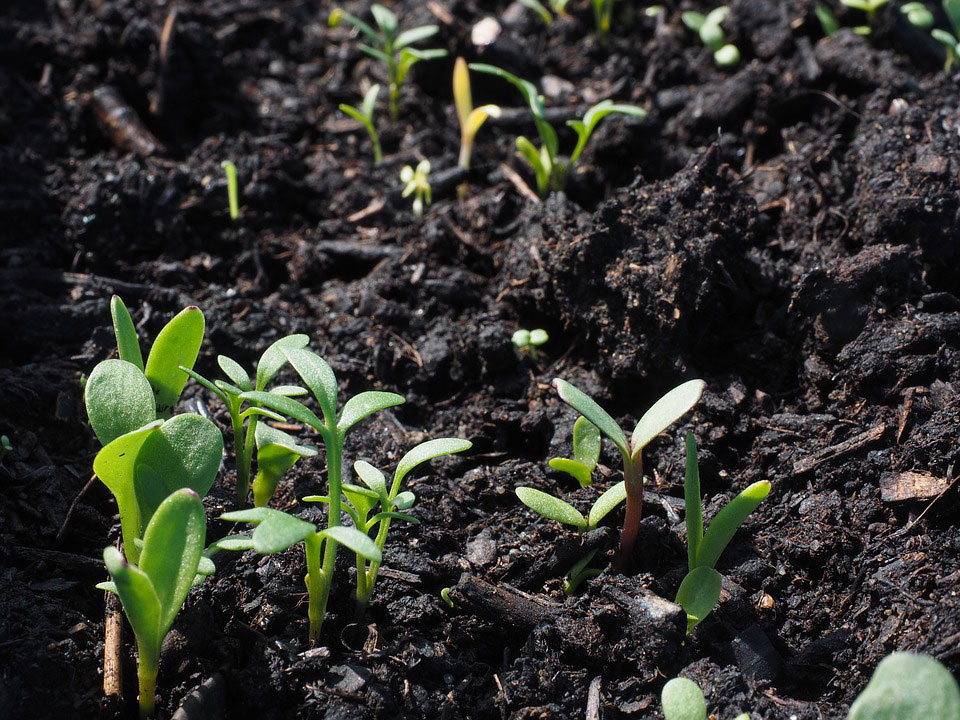
The quality of our soil is incredibly important to our yards, gardens, and landscaping. Healthy soil means plants that grow. For inspired gardeners, there is no alternative. Strong, quality soil is an absolute necessity and having it, your soil will work tirelessly to help yield all sorts of vegetables, flowers, and plant growth.
Look at our food systems. Where do all plants come from? Of course, the soil. These plants are produced to feed us and the animals that we cultivate for meat. In fact, all food production relies heavily on soil quality and the preservation of soil is also important to protecting our natural ecosystem.
From a homeowner’s perspective, healthy soil is filled with essential nutrients, water, oxygen, and is ready to support plant roots. There are many types of soil out there, each comprising of organisms that help to make and improve soil structure, recycling essential nutrients, and controlling weeds, pests, and diseases. To maintain the healthiest soil for your home, here are 3 ways to get it done.
Read more: 3 Ways to Maintain Healthy Soil for Plant Growth in the Summer Months
The Ultimate Recycling Guide for Offices and Small Businesses in Toronto
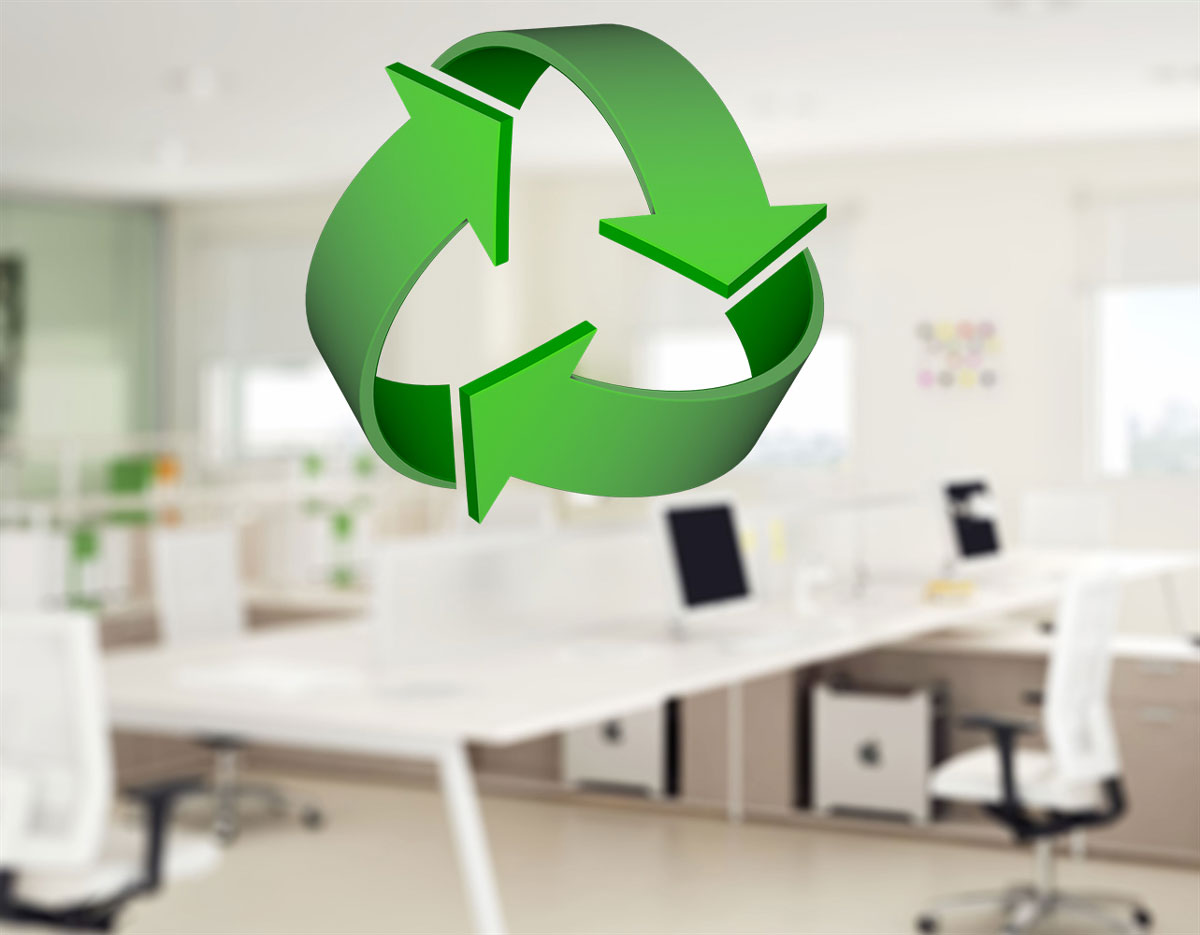
Recycling means a healthier, more sustainable environment for all of us to enjoy. Why do it? A business will help in saving energy, Canada’s natural resources, and high-value Ontario landfill space. Consumers, employees, and business partners are drawn to eco-friendly businesses committed to recycling because it shows you care and you’re doing your part. Here are some guidelines on how to start your office recycling program.
Build the infrastructure
To get started recycling, give everyone the opportunity. Set up bins that separate recycling, waste, and compostable organic materials. Educate employees on what to put where. Be creative in coming up with your own waste reduction and recycling system. Also, you should consider hiring a waste and recycling company to assist in collecting your bins, getting the different types of wastes to where they need to be.
Read more: The Ultimate Recycling Guide for Offices and Small Businesses in Toronto
Is it Even Possible for a Toronto Hotel to Achieve Zero Waste – Why We Say Yes!
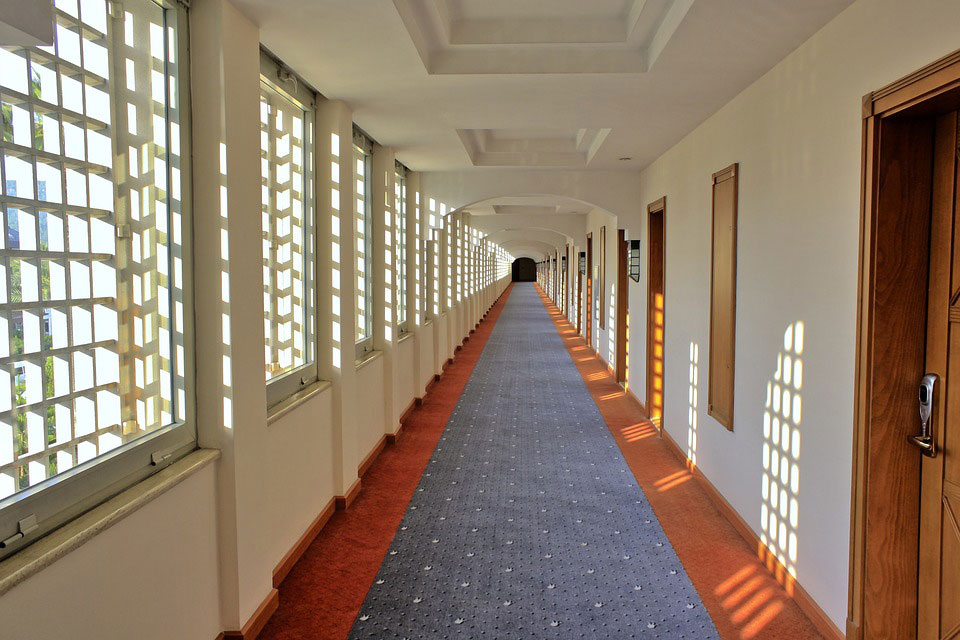
Millions of Canadians and international travelers come through Toronto visiting for leisure or business every year. Across Toronto, there are more than 20,000 hotel rooms that exist. The environmental impact of these travelers is significant yet is largely unaccounted for when discussing waste management, recycling, and zero waste in Toronto.
There’s no disputing Toronto’s a major attraction for tourists and business leaders. Our hotels are responsible for accommodating their needs, ensuring they’re comfortable and well taken care of. The operation of these hotels, unsurprisingly, can be very wasteful. Though there are some hotels that are making moves to become more eco-friendly, is zero waste achievable? It may take work but we think it’s more than achievable in the years to come. Here’s a few ways zero waste Toronto hotels can happen.
Landfill waste reduction education
Educate staff on where recycling goes and what is or isn’t recycling. Hotels should make it easy for staff and guests to recycle. The easier it is, the more likely you can make it happen. Any recycling doesn’t count towards landfill waste output.
Read more: Is it Even Possible for a Toronto Hotel to Achieve Zero Waste – Why We Say Yes!
How Damaging is Paint to an Eco-Friendly Toronto – See its Environmental Impact

A fresh coat of paint is a great way to freshen up the look of a space, be it an office or home. Naturally, it’s common to come up with some left-over paint after you’re done the job. Unfortunately, this left-over paint does not always get disposed of safely.
Before we delve into the environmental impact of paint in Toronto, there’s a 3-point rule that deserves mention. The first rule is to buy only the amount of paint you need. The second is to use the paint you buy. The third is to dispose of any leftover paint in the safest manner possible. You will have to calculate exactly how much you need, which is something some retailers can help with.
In disposing of paint in an eco-friendly way, if possible, re-purposing the paint or keeping it for future touch-ups is the easiest way to go about it. Lighter colors, for example, can sometimes be used as primers. Don’t be afraid to be creative with how you repurpose your paint. You just may be helping keep our Earth looking all the more spectacular, natural, and protected.
Read more: How Damaging is Paint to an Eco-Friendly Toronto – See its Environmental Impact
What Are the Differences Between Organic Topsoil and Non-Organic Topsoil
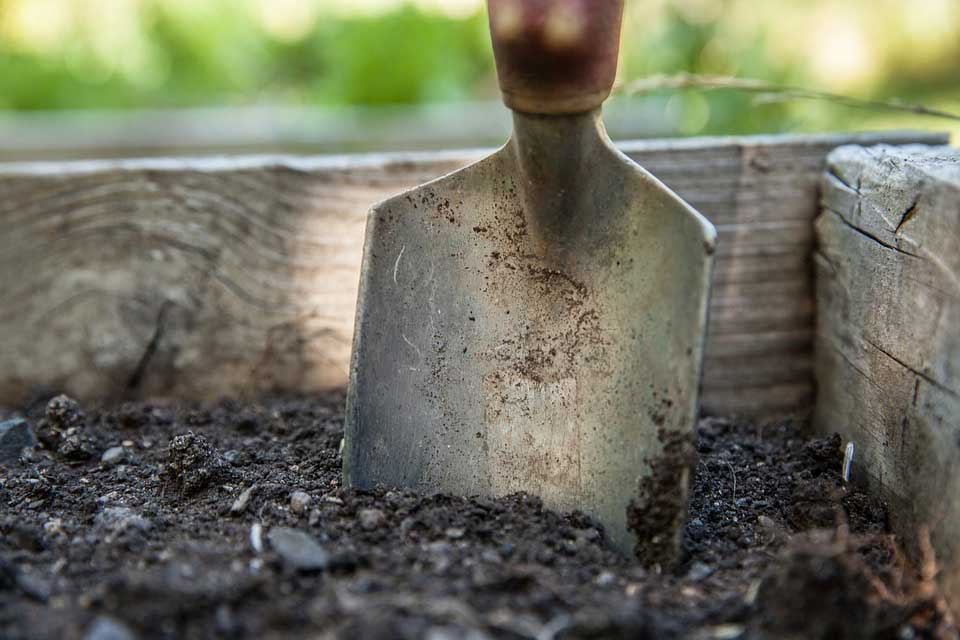
‘Organic’ isn’t just a tag we put on topsoil. It counts for a lot when we’re discussing organic and non-organic soil. Selecting the right type of soil for your garden relies on one’s ability to decide between the two.
Organic soil
Organic soil is made from organic matter, plain and simple. In organic soil delivery, you may find decaying plant materials, microorganisms, and worms. This makes the soil rich in nutrients and minerals which can be key to helping your property’s garden glow. Also sometimes referred to as ‘living soil’, it has plant and animal residues decomposing, cells and tissues of organisms, and substances synthesized by the soil organisms included. In a sense, this is like a topsoil super-food!
There are two main types of organic soil – mulch and compost. Mulch is made from decaying bark, leaves, and wood chips. It retains moisture and enriches soil, slowly releasing nutrients into the soil. Mulch is very common to apply as a top soil in a garden, flowerbed, or around trees. There’s also compost, which contains even more decaying organic matter coming in the form of vegetable scraps, leaves, and vegetative waste. When mixed with soil, compost will increase nutrients and drainage.
Read more: What Are the Differences Between Organic Topsoil and Non-Organic Topsoil
See the Best Junk Removal Services for Commercial, Residential, and Industrial in the GTA
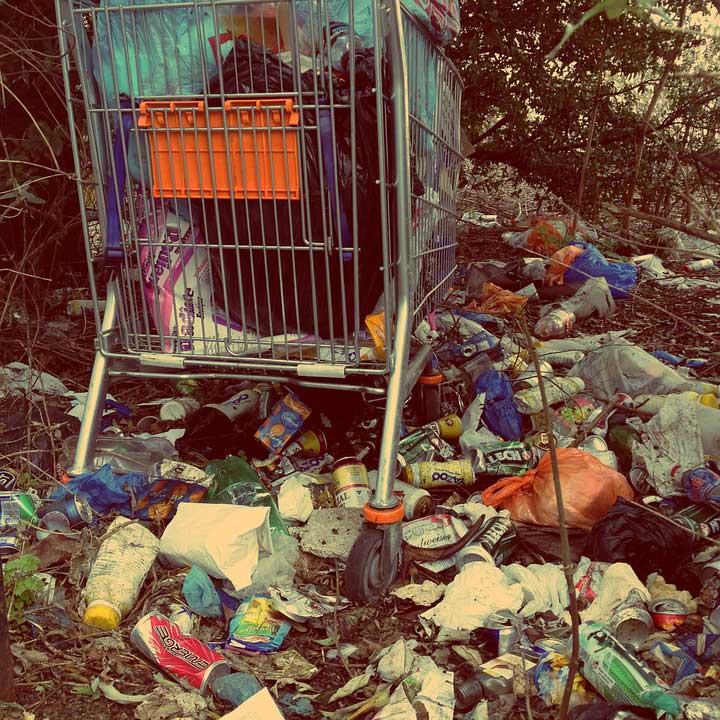
Every month, thousands of people are moving into Toronto, out of Toronto, and around the GTA. Torontonians are buying new furniture and tossing out junk in their storage units. It’s also mid-summer so you know a sufficient amount of homeowners are doing renovations on their properties. Alongside all this, there’s construction companies building and re-building, industrial sites generating waste, and more. Do you know what solves all of this junk – easy answer.
Junk removal services can be as easy as making a phone call. We come, we show up with the space we need to move what needs to be moved, and then, we’re out of there. Alternatively, there’s bin rentals and dumpster rentals which provide an industrial site or commercial construction site, or even a homeowner’s renovation, with a place to toss all their waste, junk, garbage, and whatever they need. We drop it off at your leisure and we pick it up on a pre-arranged date/time.
Read more: See the Best Junk Removal Services for Commercial, Residential, and Industrial in the GTA
How to Identify an Excavation Company that Isn’t Worth Hiring
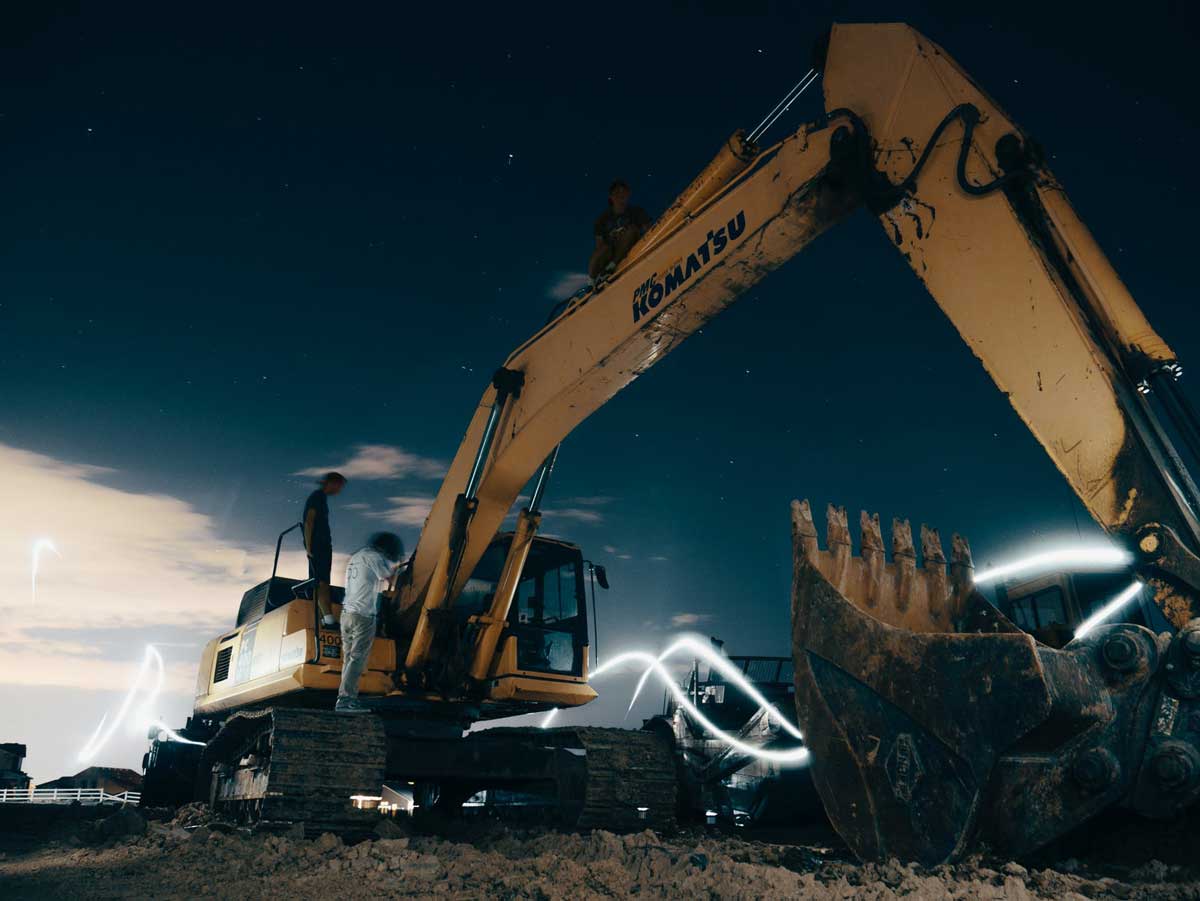
In excavation, there’s a lot that goes into ensuring the job is done safely, efficiently, and up to expectation. Hiring the wrong company who does not come through on what you’re expecting for your excavation, it can be very problematic for a project.
As a Toronto excavation company ourselves, we’ve seen others put up a lot of red flags when it comes to how they do business. Before you hire any excavation company, you should know the risks. Cover your bases. Hire excavation professionals you know and trust. Interview and get to know the company you want to hire. Here are a few of the red flags we’ve identified in bad excavation contractors.
The first place to start in your search to verify the contractor you’re talking to is being honest, transparent, and straightforward is to ask for references. Do your research and don’t hire anyone based on face value alone. If an excavation company’s unwilling to provide references, it’s because they probably don’t have any or have failed at past projects. This may be a sign to ask another excavation company for services and to come on.
Read more: How to Identify an Excavation Company that Isn’t Worth Hiring
Tips, Tricks, and Advice from a Toronto Demolition Company that’s Fast and Efficient!
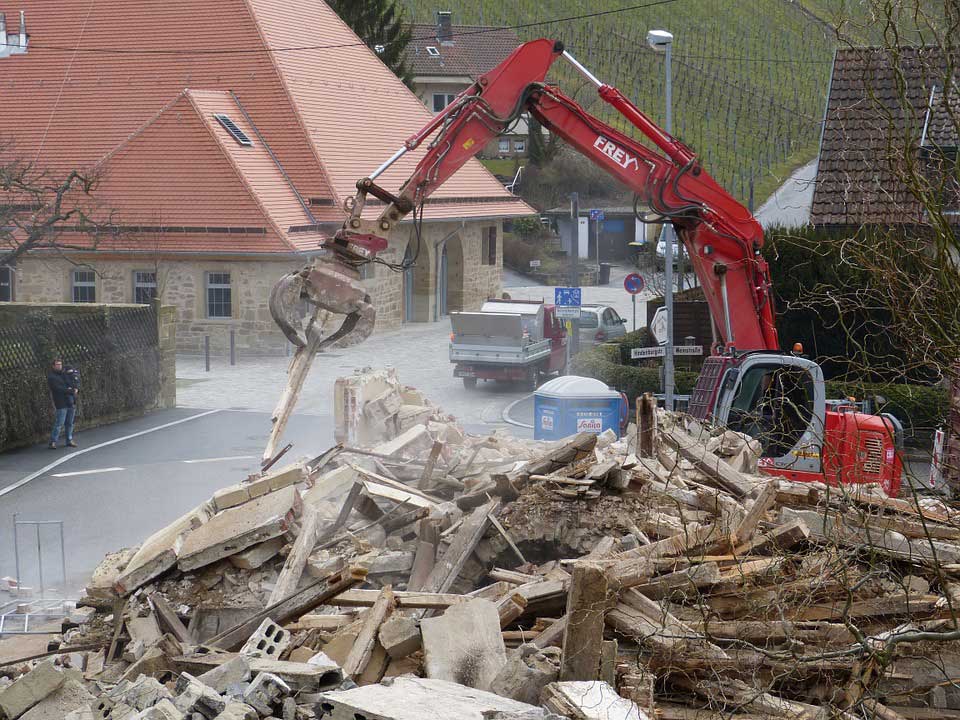
To successfully complete a demolition in Toronto, a lot of time and care is given to how to orchestrate a project. There’s a lot that we rely on our demolition contractors for. A construction company ideally wants their demolition contractors to have integrity, to be conscientious regarding employee safety, and to be committed to environmental safety.
This isn’t just it when it comes to demolition services in Toronto. As a company who’s worked on hundreds of projects – residential, commercial, and industrial – you pick up on tips and tricks. If you’re considering on hiring a demolition contractor for your new construction, renovation, or refurbishment, here are some tips you can use to ensure you’re picking the right company.
Safety’s top priority
When safety’s not followed for both employees and on the job site, this opens you up to injury, possible death, material loss, and building damage. A demolition company who shows they’re committed to safety on the site wins high marks!
Read more: Tips, Tricks, and Advice from a Toronto Demolition Company that’s Fast and Efficient!
Solving the Problem of Renovation Waste with a Bin Rental or Dumpster Rental
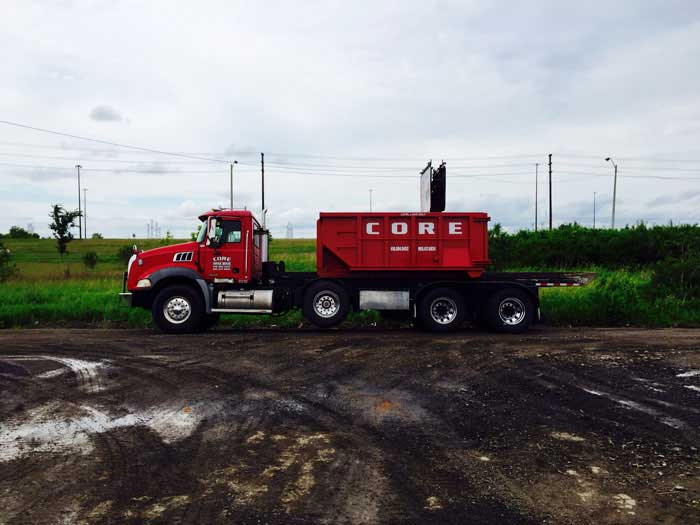
Are you renovating this summer? The warm weather’s a great opportunity to get some constructions done on your property. If you’ve never done it before though, you may be somewhat surprised by the amount of waste generated. So what do you do with all that construction waste – easy answer. Call a bin rental or dumpster rental company who can help. You don’t want someone who’s just going to lug it all to the landfill, either. Choose an eco-responsible Toronto bin and dumpster rental company who can assist in recycling, reusing, and disposal.
When you rent a dumpster for a renovation, you move the conversation away from where you’re going to put all the waste and allow yourself to turn focus to actually getting the construction done. A dumpster’s a single place where you can toss everything you need taken away. Renovating just became a lot less cumbersome and taxing, with clean-up being as easy as throwing it in and then, giving your dumpster rental supplier a call. You don’t need to strain, arrange any transportation, and there’s nothing grueling about it.
Read more: Solving the Problem of Renovation Waste with a Bin Rental or Dumpster Rental
Do You Need a Dumpster Delivered to your Job Site Today in Toronto – Call Us!
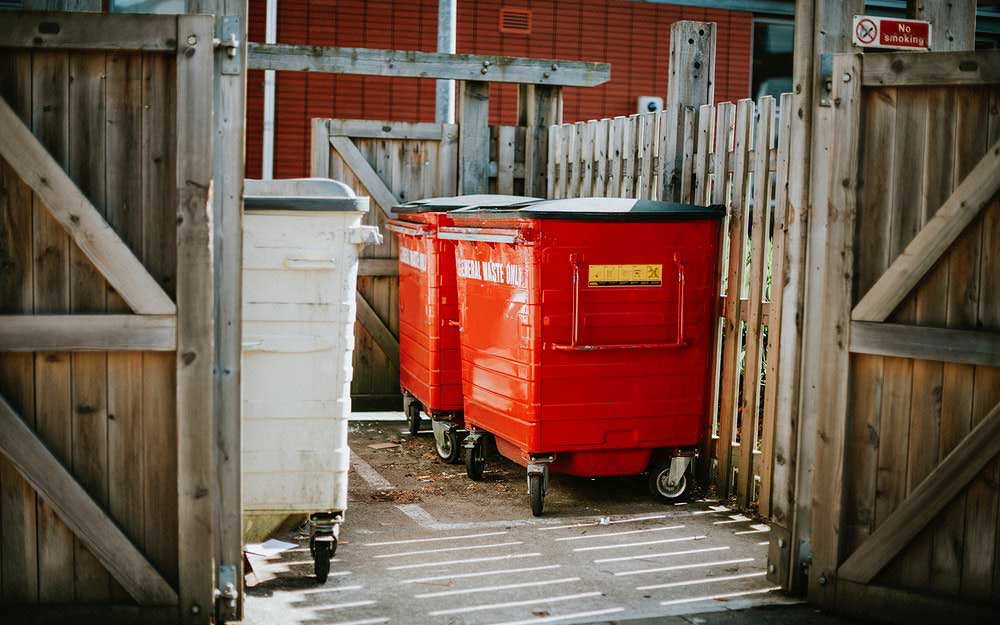
Commercial and industrial job sites generate waste. It’s unavoidable. It’s just what happens. An appropriate way to handle the high amounts of waste job sites generate is to rent a bin or dumpster. Thankfully, they come in different sizes and with different capacities, when plenty of opportunity to customize what you need for your job site.
Imagine if you needed a dumpster right away, right this minute, no questions asked. Would you know who to call? Go searching dumpster rentals in Toronto for industrial sites and you will find these companies don’t all deliver to the job site same-day. You may have to wait a bit. Comparatively, Core Mini Bins can deliver a dumpster bin to you today. GTA-wide, we offer dumpster delivery same-day.
Some of the projects we’ve worked on include renovation projects, refurbishments, demolitions, apartment building and condo development constructions, and commercial property construction. For all of our customers who know us, they know they can rely on us for a reliable, professional service. And, if you have any waste management concerns or questions, we’re always happy to provide some answers.
Read more: Do You Need a Dumpster Delivered to your Job Site Today in Toronto – Call Us!
Where Does Wood Go? Find Out What Happens to Toronto’s Urban Wood Waste
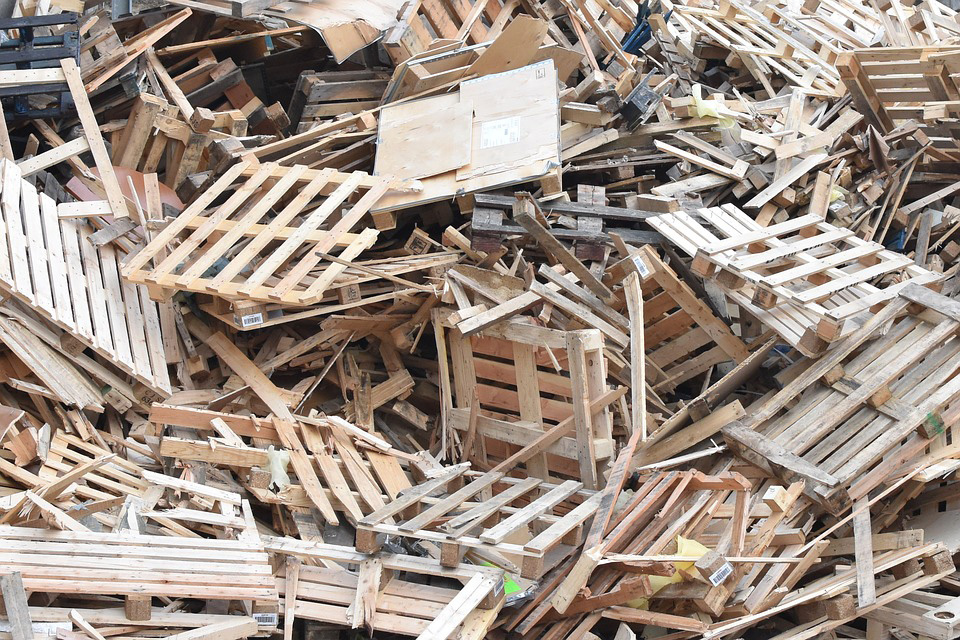
Toronto loses about 100,000 trees every year due to old age, diseases, and worms. These trees, when removed, are usually discarded as waste. That’s really unfortunate, considering all the beauty lying beneath the bark.
The beautiful lumber from city-owned fallen trees can easily be recycled and/or repurposed in the form of furniture and in green building designs. As an urban resource, we ask, where does Toronto’s wood waste go?
Toronto has a total of about 4.1 million trees in the city and another 6.1 million trees in the community. Diseases and pests that usually kill these trees are things like Dutch elm disease, the Asian long horn beetle, the gypsy moth, and the Emerald Ash Borer. By next year, it’s expected the Emerald Ash Borer alone will be responsible for killing most of Toronto’s Ash trees.
Read more: Where Does Wood Go? Find Out What Happens to Toronto’s Urban Wood Waste
Do You Know What Country has the Best Recycling Rate? Take a Guess!

In Canada, we hear a lot about recycling in Toronto, recycling in our cities, and recycling in provinces. We get data locally as well as nationally that tell us a lot about how we recycle.
Canada’s recycling rates though don’t often get compared to that of other nations. Most Canadians probably couldn’t tell you where we rank in the world as it relates to the eco-friendliness of our waste management system.
As a means of measuring how effective Canadian waste management is, we’ve used a comparison of recycling rates to determine where we rank. A lot of us take pride in how much recycling we do, as households and collectively.
Compared to other nations, Canada ranks surprisingly low. In fact, we didn’t even make the top 25 countries for recycling rates. The United States, in fact, ranked higher than Canada. Here’s some more info on recycling rates worldwide.
Read more: Do You Know What Country has the Best Recycling Rate? Take a Guess!
5 Common Demolition Waste Examples made from Hazardous Materials
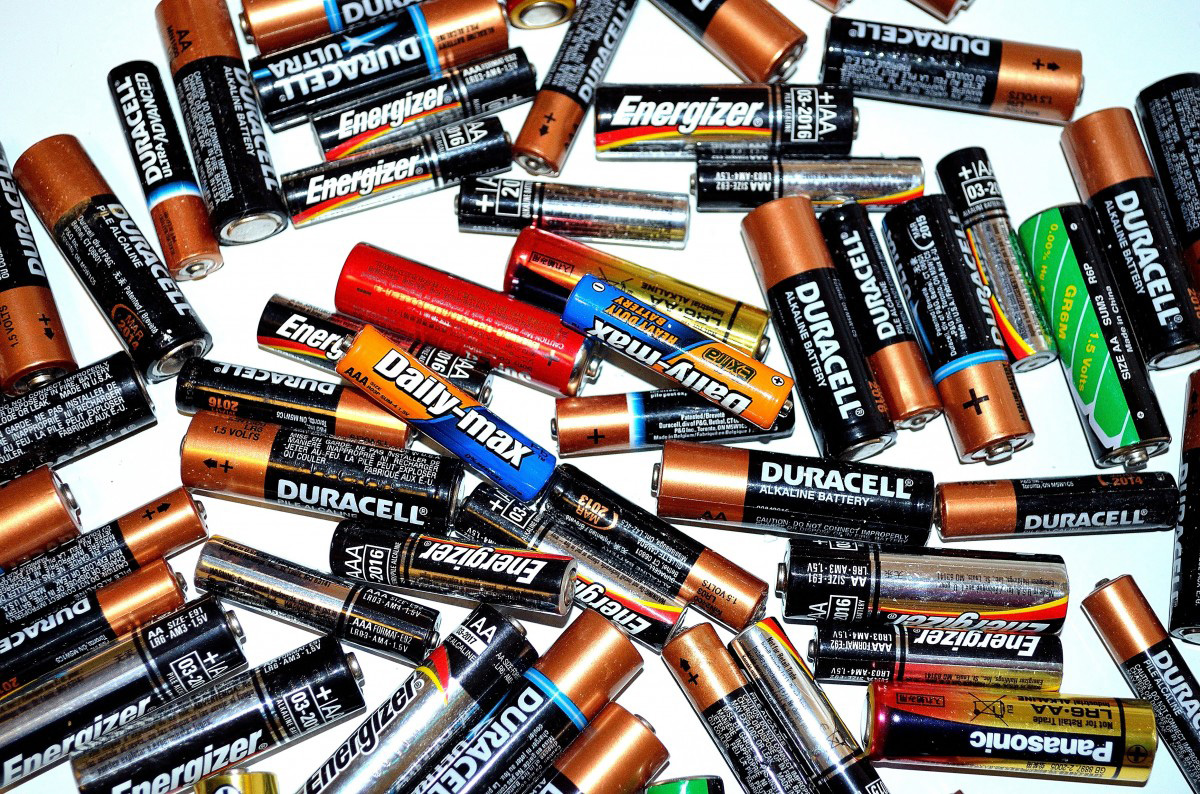
Hazardous waste is common in demolition work. It’s something we run into a lot, though the hazardous material type varies. The most well-known hazardous waste in construction and demolition work is asbestos and lead paint. In older builds, as one will find several of them throughout Toronto, these sort of materials tend to pop up here and there. It’s important to use the appropriate methods to remove them safely off-site and have them processed.
Asbestos and lead paint are far from the only types of hazardous waste in demolition that you’ll find. In our list of five of the most common demolition waste examples, we’ve chosen to put a spotlight on some of the most surprising yet common materials to look out for. The following materials are just as dangerous – or at least have the potential to be just as dangerous – as asbestos and lead paint. It is critical to be aware that they exist and as a demolition company to know how to safely remove them.
Light bulbs
Specialty light bulbs can pose a health and safety risk, if they have mercury inside. This toxic and very dangerous substance is bad for the environment as well as personal health. Any fluorescent or high-density discharge bulbs are likely to contain mercury. When these are discovered in our pre-demolition inspection, they are tagged and removed with a safe, secure disposal method.
Read more: 5 Common Demolition Waste Examples made from Hazardous Materials
What Do the Recycling Numbers 1-7 on Plastics Mean for your Renewables
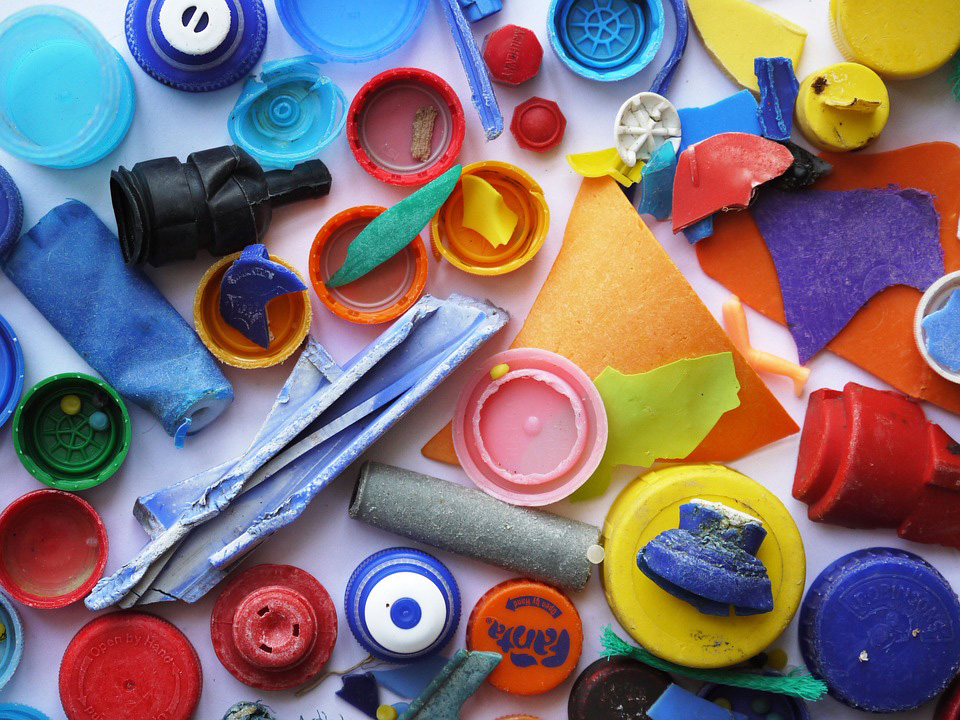
Plastics are recyclable, did you know? It’s not really spoken about often in mainstream media or on social media as so much of the conversation is dominated about problems with plastic recycling but yes, plastics can be recycled. That said, there are different types of plastics and recyclability varies. It all comes down to the number. Here’s what we mean.
Plastic products are stamped with a number between one and seven, in the center of a symbol. This is the ‘resin identification code’ which recycling plants use to sort plastics. Some recycling plants only accept certain kinds of plastics while others need the plastics separated. These numbers are very important. From a consumer perspective, it also will tell you whether a plastic product will be recycled or not.
1 – polyethylene terephthalate
Plastics with a ‘1’ are PET plastics. This is the most recycled plastic there is and the one most frequently handled by consumers. Polyethylene terephthalate is commonly used in things like peanut butter jars, beverage and water bottles, microwave food trays, and salad dressing bottles.
Read more: What Do the Recycling Numbers 1-7 on Plastics Mean for your Renewables
How Do We Sustainably Manage Construction Waste in a Growing Canadian City
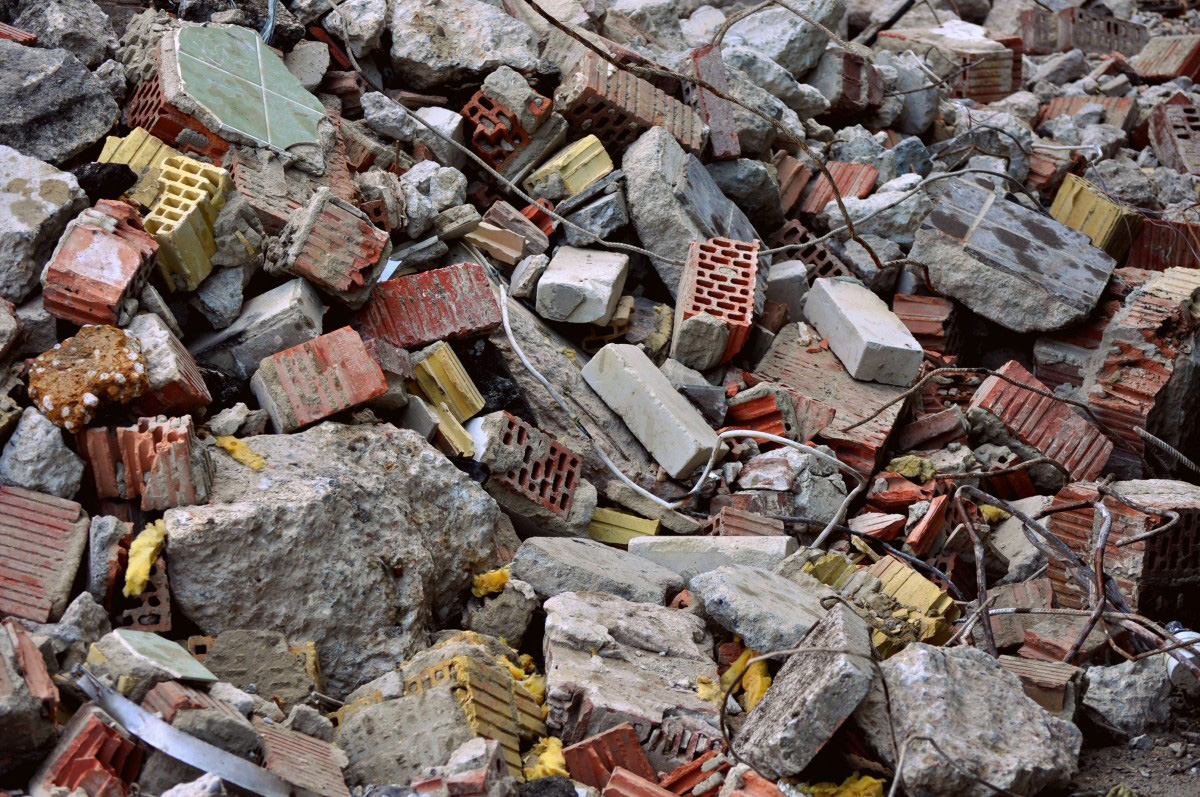
As a demolition contractor in Toronto, environmentally sustainable philosophies guide a lot of planning surrounding what to do with the construction waste we run into. Demolition debris and construction debris may seem like a lot of waste but they can actually contain very valuable elements which can either be reused entirely or recycled into something new.
Demolition debris in a city like Toronto consists of waste materials derived from buildings, roads, and bridges. When possible, the sustainable management of handling this debris necessities a consideration of reusing these materials in another building project or to recycling it. When recycled, this helps to cut down on time and costs – both, financially and in energy – associated with procuring new materials.
A lot of construction waste in Toronto are provided in big, bulky, and heavy pieces. They include materials like concrete, wood from buildings, asphalt from roads and roofing shingles, gypsum which is the main component of drywall, metals like stainless steel and aluminum, bricks, glass, plastics, salvaged building components such as doors and windows, fixtures such as those used for plumbing, and, if one’s clearing a site, things like trees, stumps, soil and earth, and rocks.
Read more: How Do We Sustainably Manage Construction Waste in a Growing Canadian City
Do You Want to be Greener? See 5 Ways to Cut Down on Your Waste this Summer in Toronto
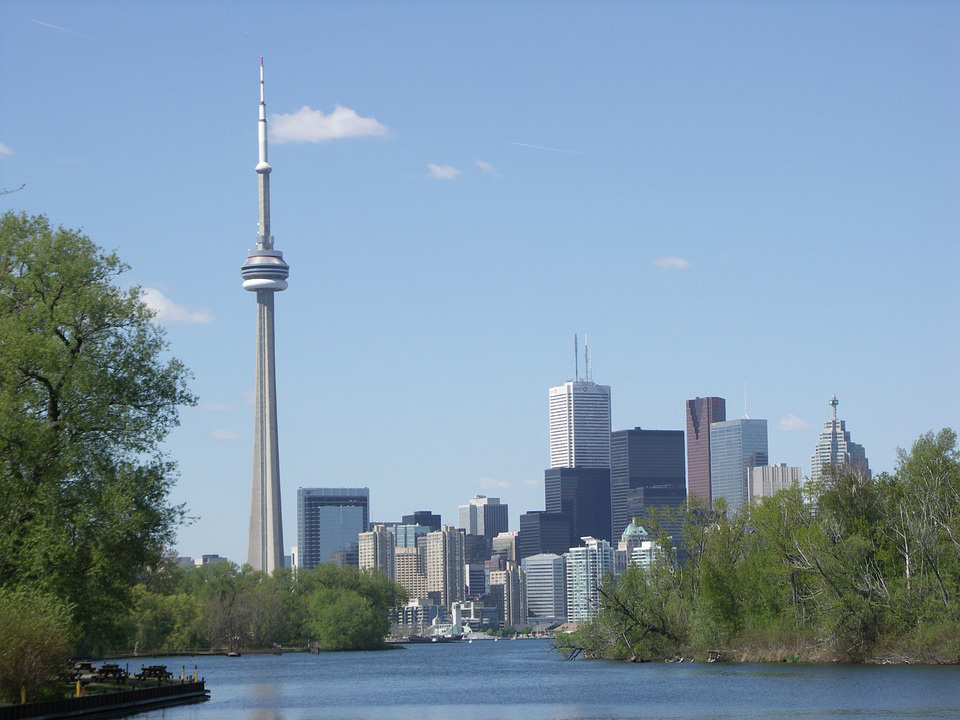
‘Being green’ is not just a declaration. It’s more than that and it’s more than a commitment as well. Being eco-friendly and green takes daily effort. For a commercial entity, there’s a lot of opportunities to conduct business in a green way. For the average Canadian living in Toronto though, one’s not necessarily always aware about how the decisions they make on the daily affect others.
There are a multitude of different ways to go green in Toronto but we’ve boiled it down simply to our top five. Before we jump in though, if you want to live an eco-friendly life, all it takes are decisions. The infrastructure for a zero waste society is still being built. Single persons can only do so much, with the waste management and recycling opportunities around them. That aside, consider these five tips.
Be creative
A huge theme you’ll find in trying to live the greenest life possible is to be creative. If you have a family, consider making this a group activity. Think about some DIY stuff you could do to either reuse or recycle. Did you know you can make your own shampoo and bath products? It’s true! Consider going to events sharing and trading clothes, books, electronics, and more. Look up possible reuse or recycling crafts online! This can get very fun.
Read more: Do You Want to be Greener? See 5 Ways to Cut Down on Your Waste this Summer in Toronto
What Does a Carbon Neutral Future Look Like for Canada’s Business Community

Carbon neutral is a society with no net release of carbon dioxide to the atmosphere, which is accomplishable in the modern age usually by offsetting emissions in some way. By reducing consumption and moving towards zero waste, it’s also possible to help minimize carbon dioxide production or association.
Although ‘carbon neutral’ is a concept associated with residential communities, Canada’s business community has also taken a lot of initiative in recycling, donating, reusing, and implementing landfill diversion programs.
Some of the business types in Toronto with carbon neutral or zero waste related goals include restaurants, city suppliers, retailers, hospitality companies, engineering firms, airlines, transportation corporations, law firms, tourism and events management companies, non-profits, grocers, auto-body shops, newspapers, financial institutions, and universities. There are literally 100s of small businesses and major corporations doing amazing things in Toronto to limit their waste production.
There’s some debate currently as to whether Canada as a whole is actually carbon neutral. Fortunately, we have significant amounts of forest which help to offset a lot of the waste production and carbon we produce in our cities or urban environments. In fact, some estimates suggest Canada as a country is already absorbing up to 30 percent more CO2 than it emits.
Read more: What Does a Carbon Neutral Future Look Like for Canada’s Business Community
Should Organic Waste Bins be Mandatory for Condos and Apartments – our thoughts

Organic waste bins are an excellent way to divert materials that could otherwise go to the landfill. About half of Toronto’s population lives in either condos, apartments, or co-operatives. It’s believed that among high-rise condo residents, only 25 percent of them compost organics. Evidently, this means the other 75 percent are throwing food scraps in with their garbage or potentially recycling, complicating matters further.
In Ontario, there’s a lot of discussion that’s happened in recent years around organic waste and what to do with it in a growing metropolitan like the GTA. In late 2017, a report was released suggesting Ontario’s landfill space will completely run out within two decades and in an effort to reduce, the provincial government began to consider a ban on organics in general trash. Although this hasn’t come to be – at least, as yet – this may be on the table in the future.
Organic waste in landfills is very problematic as it decomposes quickly and produces very toxic, harmful gases. Ontario generates roughly 3.7 million tonnes of organic waste every year, accounting for six percent of our total emissions. There are cities like Toronto wherein residents aren’t educated on what goes in the blue bin and what goes in the green bin, resulting in 40 percent of what’s being put in as trash actually being organic.
Read more: Should Organic Waste Bins be Mandatory for Condos and Apartments – our thoughts
Demolition Debris is a Recycling Goldmine that Can Save Money and Maximize Resources
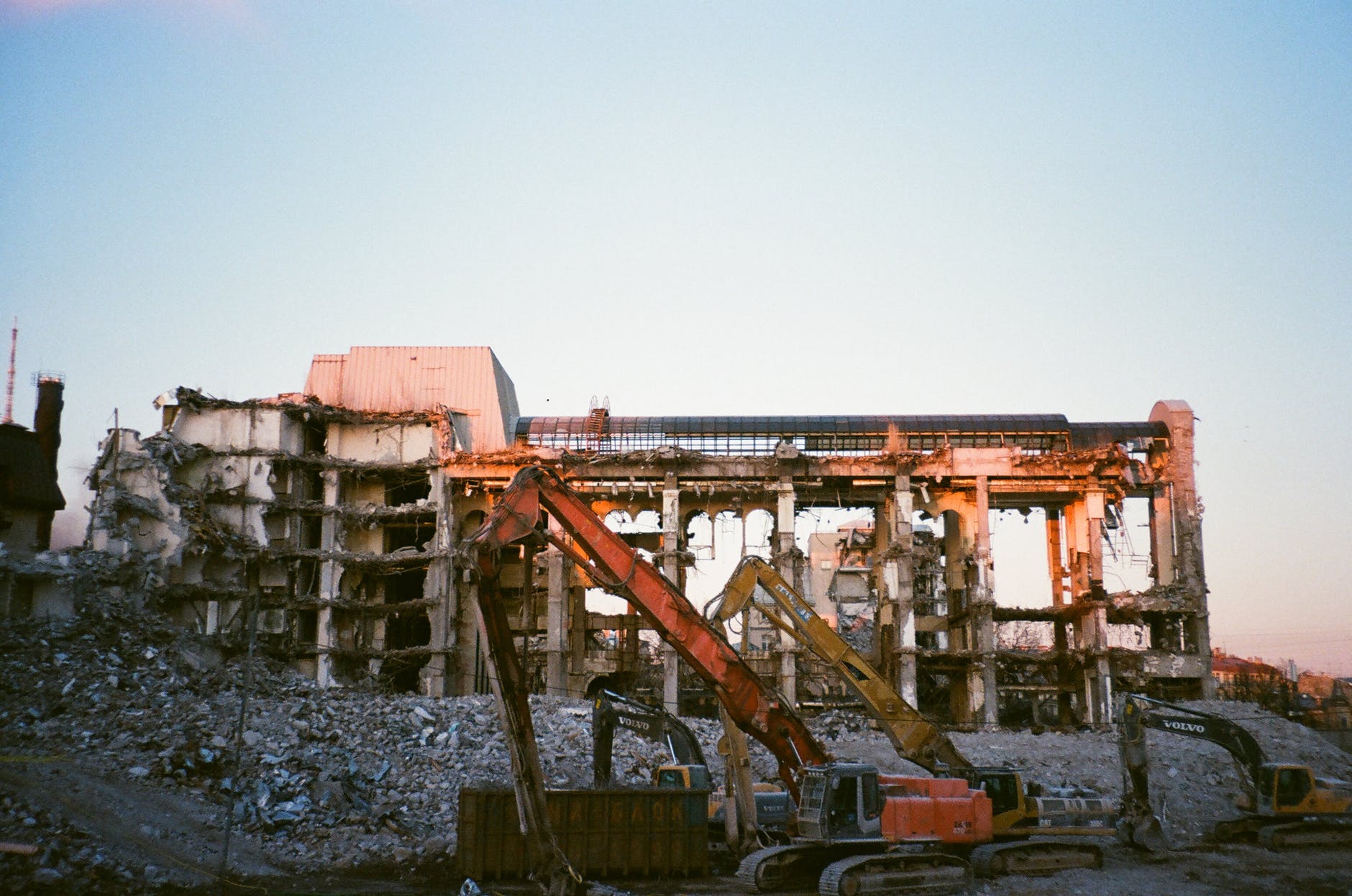 In demolitions and excavations, we oftentimes come across large amounts of waste that is otherwise sent to our Canadian landfills no questions asked. Fortunately, when you work with an environmentally sustainable and committed Toronto demolition company, you have a partner who’s looking for ways to make the most from the unavoidable waste created.
In demolitions and excavations, we oftentimes come across large amounts of waste that is otherwise sent to our Canadian landfills no questions asked. Fortunately, when you work with an environmentally sustainable and committed Toronto demolition company, you have a partner who’s looking for ways to make the most from the unavoidable waste created.
Reducing waste is a huge focal point of contemporary demolition work. By reducing our landfill waste, what would otherwise be sent to the landfill can be repurposed and recycled in one way or another. All the air, soil, and water pollution which has traditionally been associated with construction and landfills are done away with, if we can successfully conserve the energy, resources, and waste products we have. How do we do this, from the perspective of waste in demolition – here’s your answer.
Read more: Demolition Debris is a Recycling Goldmine that Can Save Money and Maximize Resources


